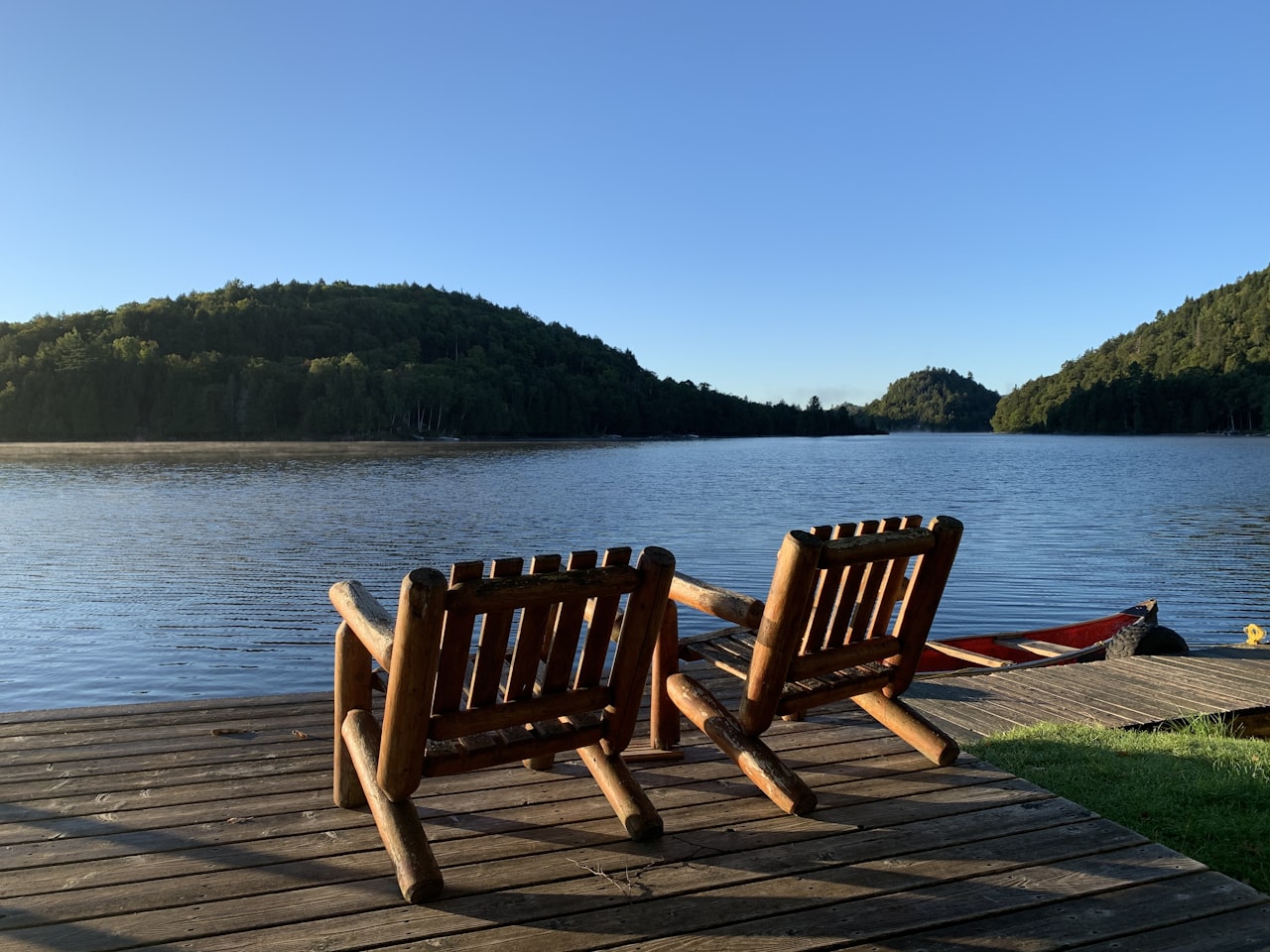Lake Geneva has been attracting visitors from all over the world for over a century. The attraction to Lake Geneva in the late 19th century by affluent Chicago families can be traced back to two distinct moments in history: The expansion of the Chicago and North Western Railway on July 26, 1871, which established regular service for passengers on what was referred to as "The Lake Geneva Express," to travel from Chicago to Lake Geneva in just five hours; And what seems like a twist of fate, less than three months later on October 8, 1871, the Great Chicago Fire ravaged through the city leaving a third of the population homeless and destroyed nearly every building in downtown. Those families who could afford it left the ruins of Chicago for Lake Geneva while they waited for their city homes to be rebuilt. Many fell in love with the breathtaking views and silvery clear water and chose Lake Geneva for their summer retreats, with the wives and children spending summers at the lake while men worked in the city and commuted by train to the lake on weekends. Many influential families planted their roots on the shores of the Geneva Lake, sparing no expense in the construction of their elaborate estates. The pilgrimage to this Wisconsin town brought about the "Newport of the West era" which took place approximately between 1870 and 1920.
Towards the end of the 19th century, planned communities were built on the lake. Glenwood Springs was the first to be developed in 1892 with approximately 100 lots within a 17-block area. Their master plan consisted of a lakefront park, which delegated a space that followed along the shoreline. According to an advertisement for the community, they wanted “the price of lots to be within the reach of men of moderate means, giving each a [shared] shoreline of over 1,500 feet.” The ad also mentioned that “a man doesn’t have to be a multi-millionaire to enjoy Glenwood.” Throughout the 20th century, more planned developments followed, and the country’s elite weren’t the only ones who considered Geneva Lake to be their sanctuary, bringing peace and tranquility to their busy city lives.
“Lake homes” were typically secondary homes, usually smaller in square footage than their primary residences and many were only used for three seasons in the year, void of hot water or HVAC systems. These Lake Homes were used only a fraction of the time, which was typically during the summers, weekends, and holidays.
However, there was a dramatic shift in the way we used our lake homes beginning in 2020 with the onset of COVID-19. As many employers sent their workforce home to work remotely, these lake homes were used with more regularity. This caused the inventory of available listings on Geneva Lake to be quickly depleted, including the carry-over inventory from previous years. New listings were now faced with multiple offers and the bidding wars that followed drove up the sales prices on the lake.
Working remotely allowed people to spend more time at the lake and then COVID-19 kept people at home, which made amenities, including larger yards, swimming pools, home offices, exercise rooms, and theater rooms, more desirable. The need for more square footage to accommodate quarantined families motivated some to trade up or add on. These lake homes were no longer just secondary homes, they became co-primary residences, with time being split between the properties.
As we enter 2023, we are starting to see a shift in the work dynamic. As some employers are calling their workforce back to the office, lake homes, for those, will be used less. There are many employers, however, that have incorporated flexible working arrangements, allowing their employees to work remotely. Data suggests that homes with smaller footprints, under 4,500 square feet, are an emerging trend. This could be due to a few reasons from higher interest rates coupled with soaring prices that have negatively impacted housing budgets, to the lessoning of Covid-19 restrictions that sent children back to school and the need for extra space for in home learning has lessened. While inventory is expected to rise, buyer demand still outweighs supply it looks as though the secondary home market on Geneva Lake will continue to thrive.




